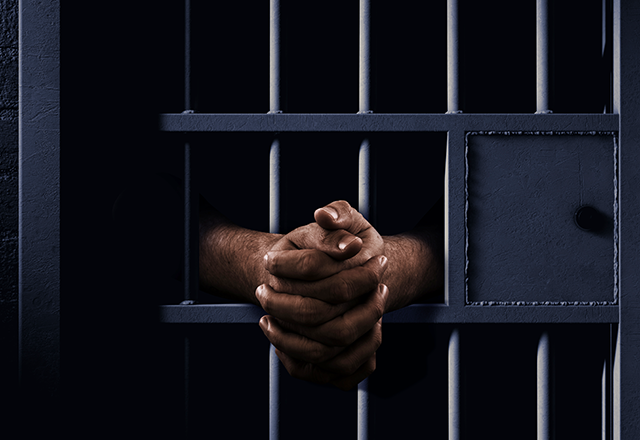Privatization of Prisons in Bangladesh: A Viable Alternative?

Kazi Ayman Awsaf : The prison system of Bangladesh is currently in a state of deep crisis, marked by overcrowding, neglect, and widespread human rights violations. With an official capacity of 42,450 inmates spread across 68 prisons, the actual number of prisoners has exceeded 83,000, resulting in an occupancy rate of over 195 percent. A large percentage of these prisoners are pre-trial detainees who are held in custody for months or even years without conviction, mainly due to systemic inefficiencies, lack of legal representation, and bureaucratic inertia.
The conditions inside these prisons are often inhumane—prisoners frequently sleep in shifts due to limited space, suffer from inadequate medical care, poor ventilation, insufficient food, and a lack of sanitation. Women and juveniles are especially vulnerable, often detained in violation of existing laws and court directives. Reports indicate that children continue to be held alongside adult convicts, and women in so-called “safe custody” are not only housed with criminals but also denied the right to leave without official permission.
The prison system in Bangladesh is governed by an outdated legal regime that mainly comprises a set of colonial laws, i.e., the Prisons Act of 1894, the Prisoners Act of 1900, and the Jail Code of 1920. In addition, while being signatories to international instruments such as the International Covenant on Civil and Political Rights (ICCPR) and the International Covenant on Economic, Social and Cultural Rights (ICESCR), Bangladesh has, at best, only partially complied with these conventions.
The said treaties require the humane treatment of all persons deprived of their liberty and ask that inmates be segregated according to categories, with juveniles being separated from adults and pre-trial detainees from convicts. The Nelson Mandela Rules, or the United Nations Standard Minimum Rules for the Treatment of Prisoners, on the other hand, emphasize rehabilitation, dignity, and humane conditions, all of which are largely lacking in the existing system in Bangladesh.
Various efforts have been in the past, including through the Munim Prison Reforms Commission in 1980 and Ministerial Committee in the early 2000s, but most recommendations sit on paper. Some attempts were made under the supposed Special Privileges for Convicted Women Act, 2006, under which parole could be granted to women prisoners under certain conditions; however, its enforcement has been patchy and limited in scope.
Government interventions have practically failed to address the physical conditions in the prisons and the institutional failures at large within the criminal justice system. Within this context, the idea of privatization of prisons has emerged as a potentially viable option, and it is already being practiced in countries like the USA, the UK, Australia, and New Zealand.
Privatization involves contracting private entities to manage prison facilities while the state retains the responsibility for sentencing and oversight. The private prisons are said to relieve the jail overcrowding situations by way of housing non-violent and low-risk offenders. Being the entity based on efficiency, they aim at lesser costs while providing better security and management than those of public prisons.
Whereas public institutions are set within bureaucracies with the risk of slow responses, private prisons can often respond swiftly to administrative challenges, giving more opportunity for entrepreneurship in the provision of healthcare, sanitation, and programs of rehabilitation. Research in Florida and Tennessee has in fact found that private prisons can achieve lower rates of recidivism than public ones and thus can contribute to social reintegration in the long term.
However, privatization is not without significant concerns. Disputes have been raised on how profit motives might result in cost-cutting practices at the expense of the inmates’ safety, dignity, and rehabilitation. Private prison companies could be incentivized to lobby for unfamiliar sentencing laws that guarantee a regular flow of inmates. They might also orient their activities toward economic gain, to the detriment of human rights.
Cases have been reported in the United States that allege private prison operators going so far as to lobby politic decisions to extend incarceration terms and suppress reform attempts. Given that regulation in Bangladesh is weak to begin with, unchecked growth of such private enterprises might only exacerbate the present crisis. The report says that, to limit these risks, any privatization should only be taken up with full and strict government monitoring, clear contracts, clear legal safeguards, and truly independent oversight.
The privatization debate must be understood in the broader context of systemic reform. Standing in the way of such reforms are the Prisons Act of 1894 and the Jail Code, which must now be revised per international standards. The criminal justice system should be prioritized with non-custodial alternatives like bail, community service, and probation instead of incarceration, especially for minor offenses. Judicial procedures should be expedited, allowing minimal pretrial detention, and indigent prisoners should be provided legal aid through strong partnerships with NGOs like BLAST.
Children should be shifted out to Child Development Centers while women should be housed separately in adequately equipped facilities. The medical infrastructure within the prison needs enhancement, and social welfare officers trained in psychology and sociology need to be appointed to give bona fide assistance to inmates in their rehabilitation. The parole system should be modernized to decrease congestion, with inmates receiving vocational training, counseling, and religious education on the road to rehabilitation.
Despite Bangladesh is committed to ensuring the dignity of prisoners under its constitution and international laws, yet the reality is glaringly grim. The system is crumbling from within, and reform has ceased to be optional but an imperative now. While privatization is not a panacea, it does present a viable option-one that could be immediately handy for the very overstressed public system-if it were to be done with foresight, regulation, and ethics. A political will to carry this idea forward, in conjunction with legal preparedness and the willingness to embrace human dignity within prison walls, are the determinants for bringing such a system into being.
Author Kazi Ayman Awsaf, Student (2nd year), Department of Law, East West University.

